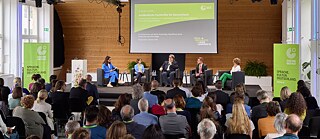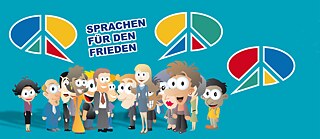German Learning in America
The SPARK Is Catching
Since 2020 the Goethe-Institut USA has been expanding its nationwide network to boost German teaching by working together with American schools. “SPARK for German” is a joint project of the American Association of Teachers of German (AATG) and the Goethe-Institut. The acronym stands for “Strukturiertes Programm zum Aufbau von Ressourcen und Kompetenzen” or “Structured Programme for the Development of Resources and Skills”.











